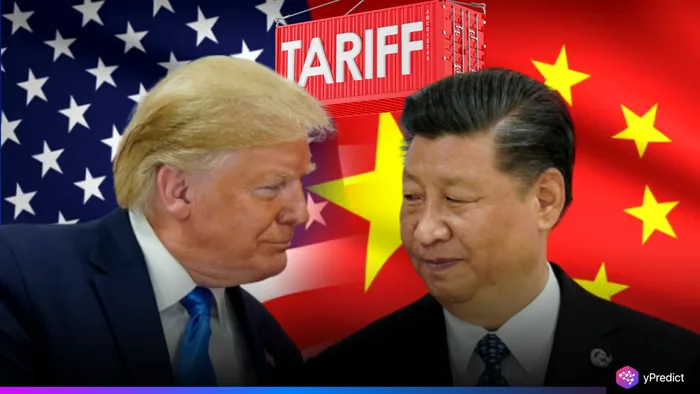
US and Chinese officials began the second day of crucial trade talks this week. Their goal is to extend the fragile tariff truce before it expires in two weeks. The deadline adds pressure on both sides. A failure to agree could trigger a new wave of retaliation tariffs. That would disrupt global supply chains and hurt the fragile post-pandemic recovery.
This round of talks carries more weight than the earlier 90-day pause. It marks a key moment in one of the world’s biggest trade relationships. Both countries must strike a careful balance. They need to protect national interests without undoing recent progress. The talks also show how deeply diplomacy and economics are now linked. Rising global tensions have made stability more fragile than ever.
Trade Talks Resume with Hopes for Stability
As negotiators complete day two of discussions, their key priority is simple; keep the trade flowing and avoid the escalation of damaging tariffs. While the tariff truce was originally arranged in the more avid days of the US-China trade war; it essentially suspended further duties and allowed both nations to reset, there were still just enough lingering issues to make for a sense of squabbles yet to be had.
The current discussions are focusing on three pretty difficult issues that have not yet been resolved, trade imbalances; enforcement of intellectual property rights; and mechanisms to prevent future flare-ups in trade. There are hints of caution and optimism from officials on both sides but no future extension has yet to be officially acknowledged.
Beijing continues to push for cooperation grounded in mutual respect and respect, trust for the long-term. Washington expects enforcement measures and measurable recent compliance, but both sides are trying to figure out how to agree while protecting their core priorities.
Economic Security Is Driving Both Sides’ Agendas
One of the recurring themes in these conversations is economic security, now a top focus for both governments. For the USA, it’s about weaning itself off Chinese products in areas like semiconductors and clean energy and ensuring that US companies are treated fairly in Chinese markets. For China, it’s more about having greater access to US markets and limited restrictions on its tech companies. Both sides profess they are pursuing economic security, but they mean entirely different things when they say it. The real challenge will be to merge those two meanings without compromising the strategic intent of either side.
This emphasis on economic security is not limited to the US and China. Governments all over the world are reassessing their views on globalization and how much control they want over their critical supply chains after seeing recent global disruptions.
The Clock Is Ticking, and Markets Are Watching
With the tariff truce set to expire soon, businesses are getting anxious. Companies on both sides of the Pacific, from farmers and factory owners to tech exporters, worry that a breakdown could lead to higher costs, price swings, and major uncertainty.
Investors are also on edge. Global markets are tracking the talks closely, hoping for a sign that an extension is in the works. Even a short-term agreement could bring some stability and give businesses time to plan.
There’s political pressure, too. In the US, trade is always a hot-button issue, especially in an election year. In China, officials are eager to keep the economy steady as they approach key domestic milestones. Any deal will need to address both economic realities and political expectations.
What an Extension Might Actually Look Like
If a breakthrough comes to fruition, don’t expect a sweeping resolution. Instead, the most probable outcome is a multistage extension of its current tariff truce – a temporary reprieve that halts further tariff actions while the negotiators continue to work on the deeper issues.
A new agreement could include routine meetings, joint task forces and scheduled phone calls. In this way, the two sides could move forward without dumping too much change on either side at a time.
For global businesses and markets, even a brief extension would be a victory. It would help to tame volatility and give policymakers more time to work out the longer game plan on trade. Despite their ideological divides, Washington and Beijing appear to grasp that another breakdown would be harmful for all parties.







